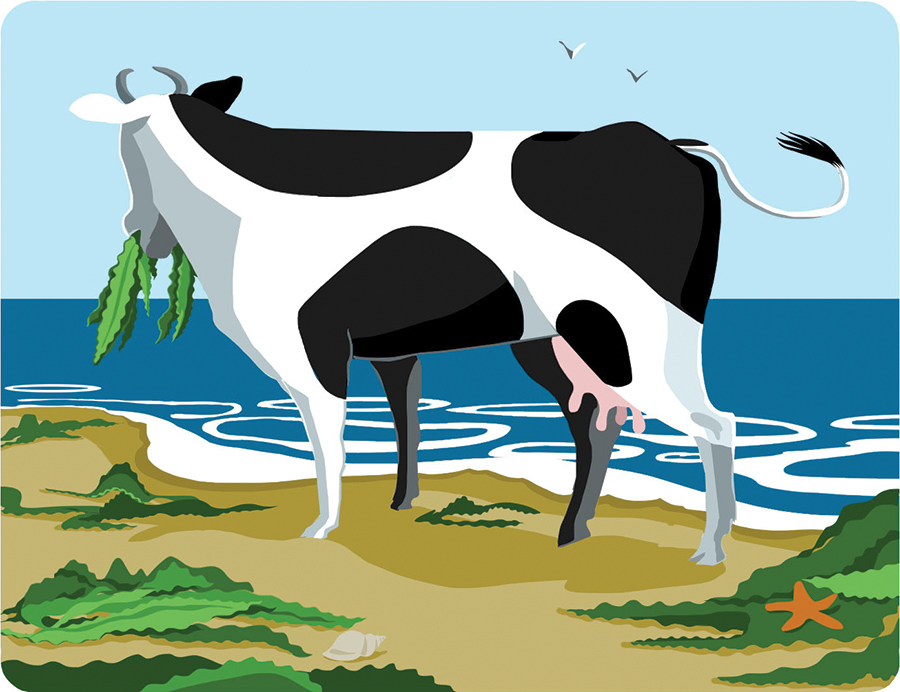
Studies have long shown that cows and other ruminants are significant producers of the greenhouse gas methane, contributing some 37 percent of the Earth’s methane emissions tied to human activity. In a study conducted last summer by researchers at UNH and the New Hampshire Agricultural Experiment Station (NHAES), organic dairy cows fed kelp meal produced less methane for part of the summer grazing season. Now, these researchers are collaborating on a $3 million grant from the Shelby Cullom Davis Charitable Fund to investigate reducing methane emissions of lactating dairy cows by supplementing their diet with kelp meal and other seaweeds.
The grant will bring together researchers from UNH, Maine’s Wolfe’s Neck Center for Agriculture and the Environment, Colby College and the University of Vermont. UNH’s portion of the project involves conducting feeding trials with the herd at the UNH/NHAES Organic Dairy Research Farm in Lee. Associate professor of dairy cattle nutrition and management Andre Brito will lead the project, with the aim of evaluating not only whether seaweed feed suppresses greenhouse gas emissions in grazing dairy cows, but also if it plays a role in improving cows’ health.